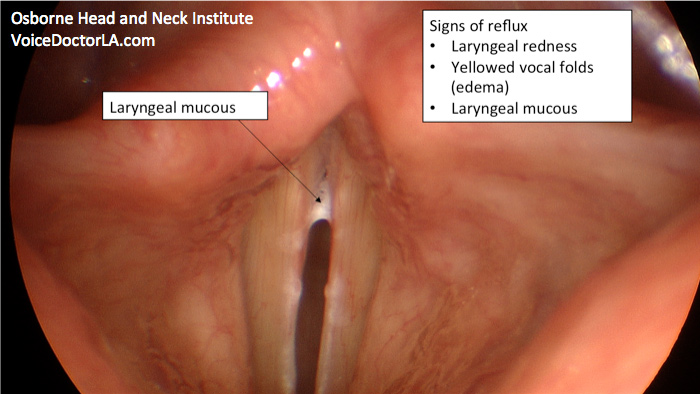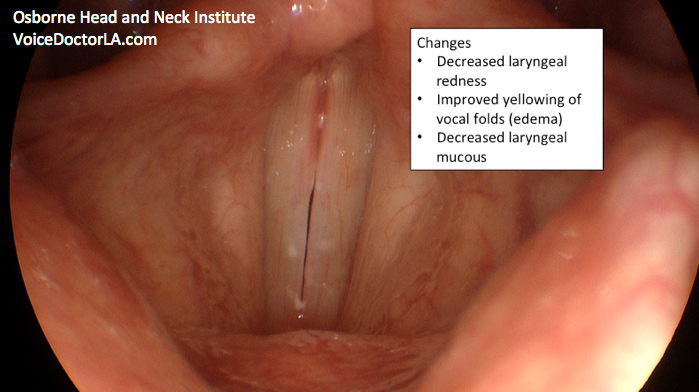- Question: How do the ingredients in e-cigarettes and vaporizers affect respiratory health? - August 16, 2019
- Bad Technique and Vocal Injury - January 9, 2019
- Is Edible Marijuana Dangerous for the Voice? Myths Dispelled - December 18, 2018
- Surprise! You have a hemorrhage - January 31, 2018
- Graves’ Disease: Treatment Overview - September 25, 2017
- Adele and the Stigma of Vocal Injury - July 11, 2017
- Vocal Curbside Consult: How does the thyroid affect the voice? - May 16, 2017
- Vocal Curbside Consult: How do hormones affect the voice? - May 3, 2017
- Vocal Curbside Consult: How do emotion and stress affect the voice? - April 17, 2017
- Vocal Curbside Consult: Vocal Recovery After Illness - April 7, 2017
The patient is a 34 year old male opera singer who presented with decreased vocal range, throat clearing, and pitch breaks during sustained phonation. He has noted changes over the past 3 months and has sought consultation from numerous physicians. He has been told that he has allergies by one doctor, and was placed on allergy medications, nasal sprays, and a nasal rinse. He has not noted any improvement with this treatment plan. The patient was also told that he had reflux and placed on a 2 week medication trial without any benefit. He has no other medical problems.
His videostroboscopy is as follows:

The video demonstrates diffuse laryngeal swelling and redness as well as vocal fold swelling. He has significant laryngeal mucous. Based on his examination and his failure to resolve with treatment of allergies, it appeared that he had reflux laryngitis. Other causes of laryngitis were not found to be present (i.e., smoking, overuse, etc).
The patient was somewhat reluctant to proceed down this path, as he had already tried reflux medications. However, upon discussing what measures and medications had been instituted, it was determined that he had been treated suboptimally. A more aggressive and targeted diet, lifestyle, and medication trial was implemented. It was decided that a 2 week follow up should be done. If there was no progress, then more uncommon sources of laryngitis would be considered.
Within 2 weeks, the patient noted 85% improvement in his voice. Stroboscopy was performed again, which is presented here:

While there are still signs of laryngitis, mucous is reduced and the mucosal wave is improved. The patient will continue on this regimen for a few more weeks. After resolution, a long-term treatment plan will be designed.
This case illustrates several important points:
- Though not as common as purported to be, reflux laryngitis does exist. Those who have worked with me know that I feel this is very often over diagnosed due to poor diagnostic equipment and inexperience. However, when it is present, reflux laryngitis can cause significant voice changes.
- Appropriate treatment of reflux should result in rapid improvement. Total resolution may take more time; however, changes should be noticeable within a few weeks.
- Those singers who have carried the reflux diagnosis and been placed on medication should evaluate whether they improved on medication. Many singers start the medication after they receive their “diagnosis” and don’t assess their improvement. If there is no improvement, there is no reflux. A second opinion should be sought at this point.
To learn more about Dr. Reena Gupta or vocal nodule evaluation and treatment, please visit www.voicedoctorla.com.



